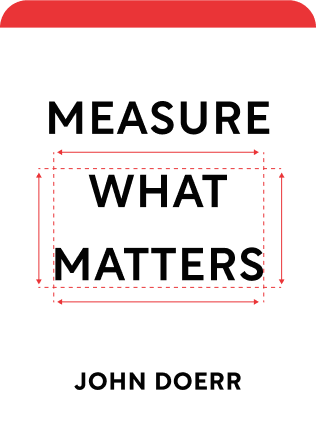

This article is an excerpt from the Shortform summary of "Measure What Matters" by John Doerr. Shortform has the world's best summaries of books you should be reading.
Like this article? Sign up for a free trial here .
How does scoring OKRs work? Why do you have to score your OKRs in order to have a successful OKR system?
Scoring OKRs is part of what makes them measurable. OKRs should always be measurable and prioritized; assigning them a score allowed you to establish where they fall in your goals, and track them effectively.
Keep reading to find out how scoring OKRs works.
Scoring OKRs and Tracking Your Goals
OKRs are always measurable, and at the end of each OKR cycle you score them. These scores help you track your progress, and they indicate when you need to double down on a particular goal or when you should revise or abandon it. This is what you need to know about scoring OKRs.
During the OKR scoring cycle and your OKR scoring process, check-in with your manager weekly or monthly to discuss your OKR progress and decide among four options for each goal:
Option #1: Continue the objective or key result—If everything’s going well and you’re making progress, keep going.
Option #2: Revise the objective or key result—If changes in your environment or workflow have caused the goal to get off track, update it.
Option #3: Start a new objective or key result—As conditions change, you may need to add new goals. If you already have five objectives, put one or two on the backburner to make room for the new goal.
Option #4: Stop an objective or key result—Some goals become irrelevant or impractical. Don’t stubbornly cling to a goal just because you set it. If it no longer serves your larger purpose or the company’s, toss it.
Scoring OKRs
At the end of the OKR cycle, you score and reflect on your OKRs. The wrap-up phase consists of three parts: objective scoring, subjective self-assessment, and reflection.
Objective Scoring
The employee and manager assign a score to the objectives. The simplest way to score an objective is to average the completion rates of its key results. One way to score is to use a scale of 0.0 to 1.0, based on how much of the key result was completed.
- 0.7-1.0 is a “green” score, meaning the individual or team achieved the goal.
- 0.4-0.6 is a “yellow” score, meaning the individual or team made progress but didn’t complete the goal.
- 0.0-0.3 is a “red” score, meaning the individual or team failed to make progress toward the goal.
Subjective Self-Assessment
Objective data are important, but they don’t always tell the whole story. Low numbers could conceal a strong effort, and strong numbers could be inflated. This is important to know about your OKR scoring.
For example, let’s say your objective is to recruit more customers, and one of your key results is to make 50 phone calls to potential customers. You end up making 35 phone calls, for an objective score of 0.7. On paper, this looks like a success. But if you waited until the last minute and rushed through your calls, signing only 1 new customer, the objective score of 0.7 isn’t really indicative of your performance.
For this reason, it’s important to balance objective scores with subjective self-assessments. Work with your manager to compare objective scores with the circumstances that led to them.
Reflection
Scoring OKRs requires reflection. To learn from your experiences and scores, use these questions as a jumping-off point for group discussion and self-reflection:
- Did you meet your objectives? If you did, what factors helped you be successful? If you didn’t, what roadblocks did you face?
- What have you learned that you want to keep in mind during the next OKR cycle?
Now that you know about scoring OKRs, you can establish your own OKR system.

———End of Preview———
Like what you just read? Read the rest of the world's best summary of John Doerr's "Measure What Matters" at Shortform .
Here's what you'll find in our full Measure What Matters summary :
- How Google uses OKRs to rally 100,000 employees in the right direction
- How to avoid setting useless OKRs, and how to set great ones
- Key subtle behaviors your team must master to make OKRs work






